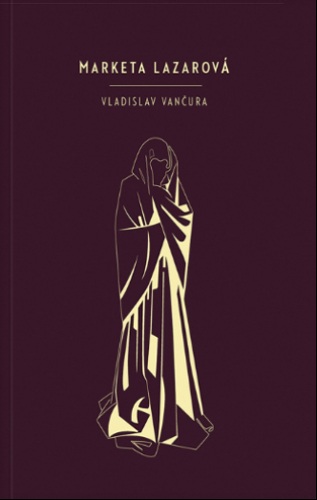Marketa Lazarová
Czechoslovak citizen Vladislav Vančura was executed by the Nazis in 1942. He’d been a novelist, playwright, and film director, and he left behind a corpus of work that includes ten novels, five plays, a children’s book, and an unfinished chronicle of Czech history. He studied law and medicine at Charles University in Prague, and was a founding member of an avant-garde association of artists. When Nazi Germany occupied Bohemia in 1939, he was active in the Czech resistance. He was arrested in 1942, tortured and imprisoned. After the assassination of a high ranking Nazi official during World War II, Vančura was one of thousands of Czechs who were murdered in reprisal.
Czechoslovak citizen Vladislav Vančura was executed by the Nazis in 1942. He’d been a novelist, playwright, and film director, and he left behind a corpus of work that includes ten novels, five plays, a children’s book, and an unfinished chronicle of Czech history. He studied law and medicine at Charles University in Prague, and was a founding member of an avant-garde association of artists. When Nazi Germany occupied Bohemia in 1939, he was active in the Czech resistance. He was arrested in 1942, tortured and imprisoned. After the assassination of a high ranking Nazi official during World War II, Vančura was one of thousands of Czechs who were murdered in reprisal.
His seventh novel Marketa Lazarová won Czechoslovakia’s State Prize for Literature when it was published in 1931, and was adapted for a movie of the same name in 1967, “generally considered one of the greatest achievements of Czech cinema.”
Readers can now access Marketa Lazarová in English in a lovely gold embossed volume with attached ribbon bookmark. Carleton Bulkin translated Vančura’s story, a fetching tale of 13th century Bohemia when kings and robbers and kidnappers ruled the land. Savagery mixes with romance and humor in this mini epic.
The principals are, for the most part, adolescents. One child, a lesser character, is only nine-years-old. When the teenaged boys aren’t fighting or stealing, they are falling in lust and love. The main couple is Marketa and Mikoláš; the other lovers are Kristian and Alexandra. Unfortunately, the fathers involved, Kozlík and Lazar, are leaders of rival clans. When you add in Kozlík’s 15 other children, his wife, Lazar’s followers, and numerous supporting characters, I occasionally had trouble figuring out who was doing what.
Nevertheless, this is a remarkable and unusual book, particularly since archaic text is relieved with beautiful writing and contemporary asides. As the story unfolds, it’s winter. “The snow, loose as salt, is churned by the horses’ hooves and clings to the tufts of their coat, stiffening it into prickles of ice.” And then, “One thing’s for sure, we’d all be fine and dandy if the heavenly powers fought on the side of those who get robbed. But they did not trouble themselves, content as they were to sit up there in the clouds [ . . . ] oblivious to whatever was happening in the valley below.”
Vančura describes a prevailing attitude toward women: “If one of the women, heavy with child, goes into labor right by the fire, what of it? Nothing! She’ll get chicken soup and noodles from a robber’s kettle!”
Young Marketa, however, has her sights set on becoming a nun. That goes south when she gets abducted and raped by Mikoláš: “She stood up over and over only to be brought down each time. She defended herself in a vertigo that shook the tops of the pines and the firmament.” Whew. Before long, they’re in love.
The lovers lose track of each other now and then, and the four of them switch allegiances here and there. Numerous betrayals and bloody skirmishes take place. Vančura writes:
Sweet Jesus, if someone had asked the soldiers what they were doing they couldn’t have said. If someone had asked the brigands, they would have bared their teeth in astonishment. To a man they are bent to their weapons, pressed to their weapons, sputtering with malice, their souls belch, no longer able to weep, their souls claw at the base of their brains and at the walls of their wretched bodies like a jaguar whose cage has caught fire.
In a novel of such medieval violence as this, we can’t expect a completely happy ending, but it’s a satisfying ending. Marketa Lazarová is a little treasure of a book for its historical value, the lusty tale it tells, and the literary worth of Vladislav Vančura’s writing.





